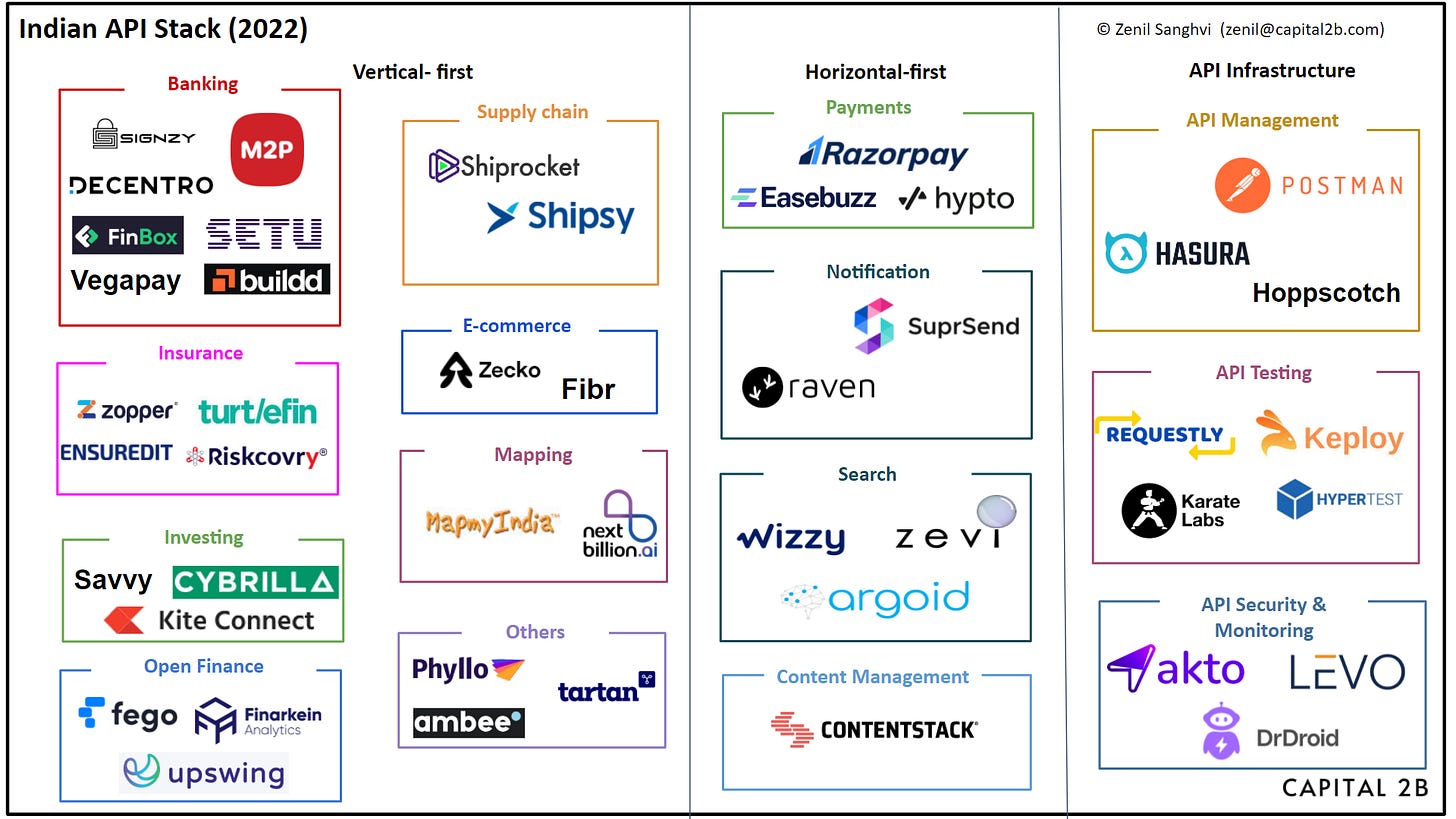The rise of API-based startups in India – and what it means for the future
Trends, opportunities and challenges for API-based startups
Coming from an engineering background, companies having APIs as a core business model are some of the most exciting bunch of startups. As every company is shifting to become software and tech-oriented, we’re witnessing the emergence of such kinds of startups having new business models with APIs at their very center.
This evolving API ecosystem allows businesses to build frictionless workflows, interoperability, and delivery of new services at unprecedented speeds that could potentially drive adoption, retention and possibilities of cross-selling without consuming large amounts of time and resources of developers. API-based startups are helping companies to focus more on their core business goals and issues and explore adjacencies in the market by:
Abstracting non-core components for startups (Eg: Stripe abstracting payments layer)
Solving for a complex task of developers (Eg: Twilio solving complexity of communication functions)
Explore new paths of monetization (Eg: Startups offering white-labelled fintech solutions for companies)
Get access to cleaned and aggregated data (Eg: Phyllo helping companies get creator data)
As 93% of world’s web traffic is moving via APIs, the Indian landscape of API-based startups has seen a lot of investor’s interest with $2.3 Billion invested and 4 unicorns in this space. This landscape has been divided into 3 parts in this article: a. Horizontal-focused (enable any company to integrate broader functionality); b. Vertical-focused (focuses on industry-specific challenges)1; c. Infrastructure (helping developers in building APIs).
Some of the trends, opportunities and challenges in India which makes this space exciting are:
Trends:
Emergence of Indian Tech Stack enabling fluid data sharing giving startups an opportunity to build layered solutions over it: OCEN, ONDC, National Health Mission, AA framework, Open Finance
Critical horizontal function are being transformed into an infrastructural API, allowing developers to innovate and scale.
As API usage explodes, we're seeing a rise in the next gen. tools to support them.
Real-time data access across applications is becoming critical for companies for tasks like internal reporting, decision making, fraud detection, etc.
Emergence of open-source startups in API Infrastructure space (Eg: WSO2, Hasura, Hoppscotch, Keploy, etc.)
API security/monitoring platforms emerging to combat complex DDoS attacks, authorization errors, and unintentional data exposure.
Expectations from startups building in this space are:
Focus on white-areas and complex problems where API penetration isn’t there yet
Should have excellent documentation (One of the reason behind Stripe’s success was it’s golden documentation standards)
Be developer-first and follow bottoms-up adoption
Match Product Value to Business Model
Some of the challenges in this space are:
Increasing penetration of APIs in few sectors like Fintech and identifying winners among them is becoming difficult due to increased competition
Price discovery is a challenge in this industry. If price is too high, then developer would build the solution in-house.
As your pricing is based on API calls, reaching the critical mass in this space is always a challenge
Overall, it is an exciting space with it’s own fair share of challenges and it would be interesting to see how it evolves in future
Feel free to DM me on LinkedIn if you have any thoughts on the piece or are working on anything in the space.
Difference between Horizontal and Vertical-first APIs: https://pentathlon.vc/api-first/
Capital2B is invested in WSO2 and Finarkein Analytics
Infra APIs in India: www.kuwi.news/p/-infrastructure-apis-in-india




Nice article zenil